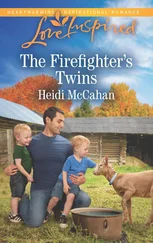But why ? I’d always wanted to ask. Was death contagious? Did it release a toxin into the air? Why did I need to be protected from her, from it? Because wasn’t it more caring for her to die with me asleep in the next room? Wasn’t this the more compelling expression of maternal love, of her inability to be apart from me, even as she guaranteed that she would forever be apart from me? I preferred to route my understanding of the situation through Sylvia Plath’s children, for whom plates of toast had been left and an insulating towel wedged beneath the bedroom door while their mother went about her business in the kitchen below, these details meant to signal to them, when they awoke, both her maternal commitment and her level of pitiable derangement, also the sad ways that a mother’s love can be amplified or reduced to acts both monumentally considerate and monumentally selfish. A towel. An oven. A plate of toast.
“She must have been suffering from postpartum psychosis,” he said.
“So it’s my fault,” I joked.
“I’m sure you’ve spent a great portion of your life wondering if it was,” he said.
“No,” I said. “Or rather, yes. But not in a way that I take personally, if that makes any sense.”
“Maybe she believed she’d do more harm to you alive than dead,” he said.
“Maybe,” I said. She was a bad person, you see . Maybe she understood herself as a form of human contagion. Thus she eradicated herself, and my father helped, via his periodic small disclosures, to regularly inoculate me against any trace remnants of her unique disease, in hopes that I would not catch it.
“Whatever the reason,” I said, “she did what she thought was necessary, despite the hideous personal cost. Thus I refuse to experience her absence as some great tragedy I must spend my life overcoming.”
Alwyn’s stepfather examined me dubiously.
“I’d like to think,” he said, “despite any polite hopes that my daughters — I have two from a previous marriage—” he clarified, “could live happy lives without me, that my death would also, in some irreparable way, ruin them.”
“How candid,” I said.
“I thought that’s what we were being,” he said.
“OK,” I said. “In the interests of candor, let me ask you this: why haven’t you or your wife seen Alwyn’s vanishing film?”
He squinted at me.
“Is that what she’s calling it?” he said.
“You might find it therapeutic,” I said.
“Might I,” he said. “Somehow I can’t imagine that watching one’s stepdaughter engage in pornographic acts with strangers qualifies as therapeutic under any circumstance.”
“You have the wrong idea,” I said. I guessed he’d seen one of Alwyn’s porn homages to Varga.
“I don’t think I have,” he said. “Do you know what it’s like to be in a hotel room on a business trip, and to be flipping through the television channels, and to stumble across a film of your stepdaughter, from whom you’ve heard not a single word in a year, performing fellatio? Although perform isn’t the right word. Being penetrated, via the mouth, while she lies there unmoving. I watched long enough to determine that she wasn’t dead.”
(A sidebar me was impressed that Alwyn’s work had been so widely distributed; these porn films were not just “hobbies.”)
“In her defense,” I said, “she saw these films as art.”
His eyes watered. He poked at the fire.
“When Alwyn deigned to contact us, it was to invite us to a screening of another of these repugnant films. For the sake of our mental health, I counseled my wife to refuse to be an audience to Alwyn’s narcissistic theatricality. She believes her daughter made a heartfelt confessional film. She has no idea.”
She did make a heartfelt confessional film , I almost said. But I didn’t. I had no idea what kind of vanishing film Alwyn had made. Maybe hers was as stiff and unrevealing as mine had been — an attempt to explain what was not explainable or forgivable. Would her mother and stepfather have learned any more about her by watching it? Maybe not. Maybe the porn films she’d made were the more accidentally revealing documents.
“If that’s how you felt,” I said, “then why did you hire the detective?”
“Excuse me?” he said.
“You and your wife hired a detective. And yet it seems you have no interest in finding her.”
This, for whatever reason, stunned him.
“She told you we’d hired a detective?” he said.
I confirmed this; meanwhile, a heavy dread settled in my gut.
“Well,” her stepfather said hoarsely. “I’d find that lie comical if it weren’t so utterly heartrending.”
He cleared his throat, scrubbed his cheek with his knuckles.
There was nothing left for us to say.
He handed me a coal hod and asked me to fill it with dirt so he could smother the fire.
Outside, the rain had thinned to a mist. I turned my face upward, allowing the moisture to settle on my skin. My hands jittered, my stomach adrenaline-queasy. I recalled Alwyn’s professed envy over the fact that someone hated me enough to attack me. Hate, she’d said, is a form of emotional attachment. How had I missed that Alwyn had been lying to me about the detective, how had I missed that she was maybe really suffering? She’d vanished herself, after all. She’d been suicidal, once. It was my error not to understand: anyone can find themselves on the brink. Anyone can wake up one morning and decide against living. Every single day, the very healthiest among us might be seen to have a fifty-fifty chance of survival.
The ground swamped and sagged under my feet. I’d eaten something that didn’t agree with me for breakfast, I thought. I was dehydrated. But then the post-quarantine side effects Mike warned me about — the reason he’d recommended a gradual reentry — started to take hold. Or at least that seemed the most logical explanation for what happened next. Sounds torqued and amplified — each leaf rustle and twig skitter a sonic boom. Each millibar of dropping air pressure a thunderclap. I heard a horrible sandpapery grating I could not place, but which seemed to occur every time I blinked. I experienced a vertigo so intense it was as though I had been gutted by a suction nozzle.
Then everything went quiet.
Even I went quiet. Quiet in the head, quiet in the nerve endings. Snowstorm quiet.
And I felt the presence. I was not alone. It’s impossible to describe this sensation to those who are numb to such things, but there’s an involuntary quality to certain experiences, like the skin tingling that precedes vomiting. You can’t help but feel.
When I opened my eyes, the wolf stood about six feet from me. It looked more or less like the pictures I’d seen of wolves, save this one seemed shorter and more compact, almost dog-like. It gripped the ground with four giant paws, its fur quilled along its spine as though it had just emerged from the lake.
We stood there, the wolf and I. I kept my gaze on the ground, angled so that it appeared in my peripheral vision. I did not want to die surprised.
Staring at the wolf this way, however, I noticed that it was surrounded by a spiraling nimbus, one that coagulated for the span of an eye blink into the astral imprint of a black-haired woman.
Madame Ackermann .
I should have been terrified. I wasn’t. I was pissed. Her appearance registered as a physical space violation, as “unfair,” even though psychic attacks, to my knowledge, had no rules of engagement, there were no Geneva Convention guidelines to humanely shape one person’s cruelty toward another. Fine to kill me from the inside. But a wolf, an actual wolf, struck me as beyond the pale.
Читать дальше












